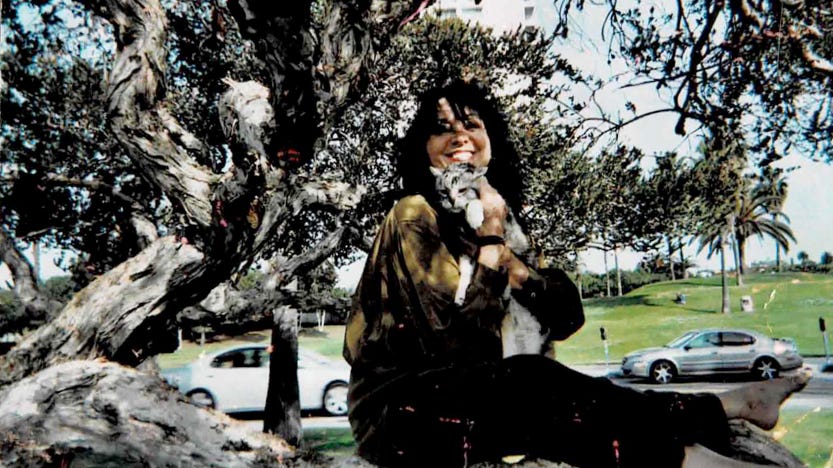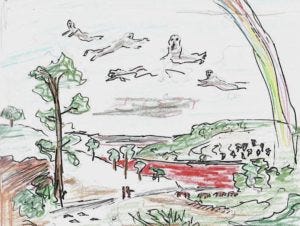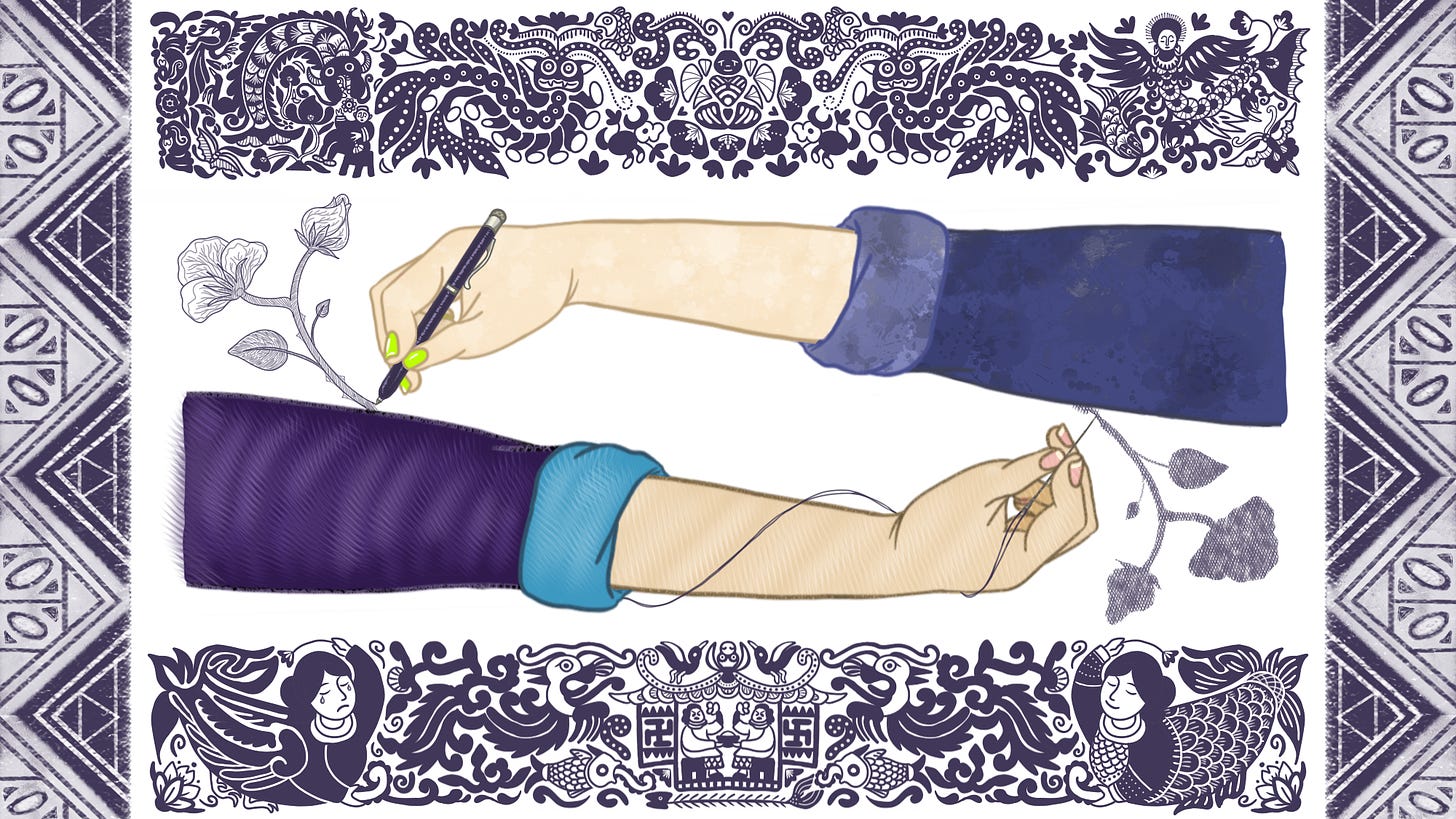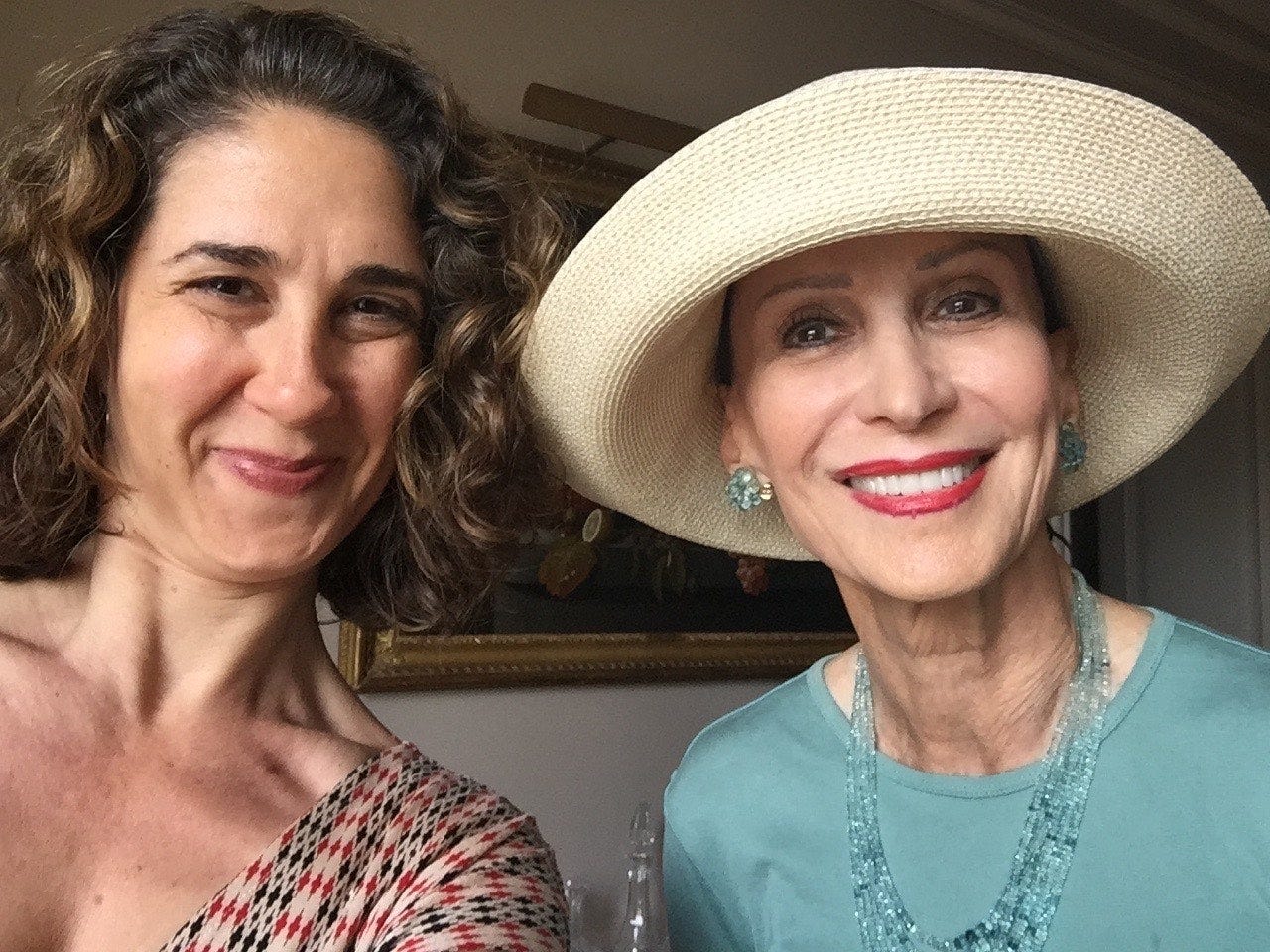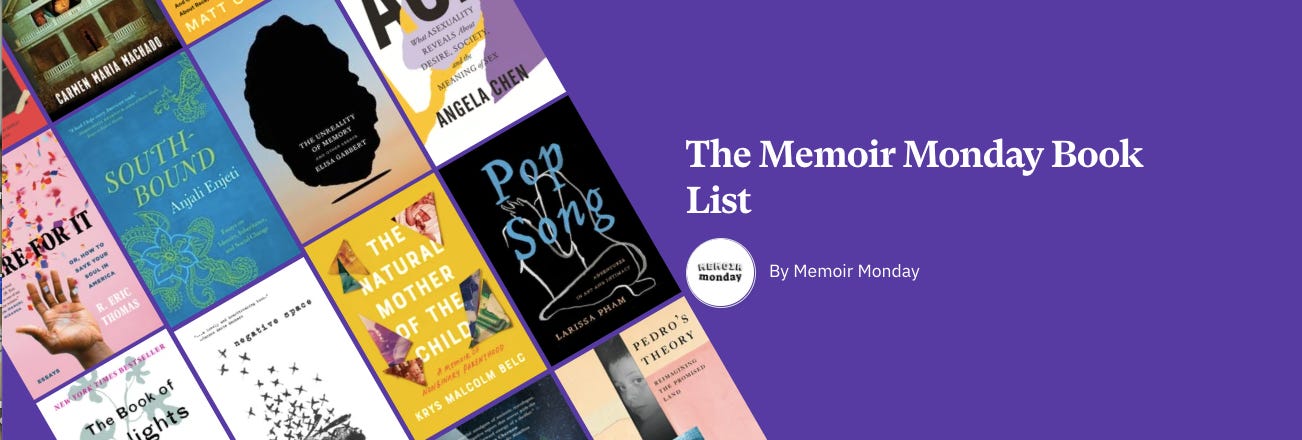Details For the AWP Memoir Monday Off-Site Reading! Plus: 13 New Personal Essays...
Welcome to Memoir Monday—a weekly newsletter and a quarterly reading series, brought to you by Narratively, The Rumpus, Catapult, Granta, Guernica, Oldster Magazine, Literary Hub — and now many additional publications.
*Soon, there’ll occasionally be original work as well, likely behind a paywall—the more subscription money that’s raised, the more original pieces we can publish. So, if you haven’t become a paid subscriber, please consider becoming one!
I’m working with the National Writers’ Union/Freelance Solidarity Project on creating a contributor-friendly contract. Once I have one, I’ll announce how to submit, although it will be a limited opportunity—one essay per month, to be called “Memoir Monthly.”
Read about our expansion plans here. Subscribe and follow us on Twitter at @memoirmonday for updates!
Get ready for the AWP off-site edition of Memoir Monday, hosted by founder Lilly Dancyger! It will be held Wednesday, March 23rd at 7pm, at Head House Books. You can RSVP to the event on Facebook.
Essays from partner publications…
Suzanne Takes You Down to Her Place By the River
by Lacy Warner
"I’d told myself — and explained to Suzanne — that I wanted to write a feminist defense of her, arguing that she deserves credit she has so long been denied. Yet I can feel my eagerness betray me, in the way I lean in just a little too far when she offers predictions about my future. Like all the others, I want something from her. I want some of her story, some of her mythological magic, to wear off on me."
Primitive Child
by Jason Allen-Paisant
"When I was a child, I knew a tree – mango, coconut, guinep, breadfruit, star apple, guava – through climbing. And if, because of their size, they were unclimbable, I looked longingly at them. I stoned them to down their fruit or I would cut bamboo poles or tree limbs to pick something from them…These were trees that fed us. We gave short shrift to the ones that bore no food."
Calliope
by Lesley Jenike
“‘Cincinnati is chockfull of ghosts,’ my niece tells me. She’s young and her father’s past seems haunted. All Ohio River babies, after all, somehow breathe in Histoplasma Capsulatum and the resulting sickness is what they call Ohio Valley fever, manifesting on X-ray as dark stains dappling the lungs.”
My Mother Told Stories Through Hmong Embroidery, I Use the Pen
by Lisa Lee Herrick
“Although I loved my mother’s stories during these embroidery lessons, I was a terrible student. I would string my needle too long, the thread bucking through the empty canvas until it knotted into great birds’ nests, and almost every stitch was uneven. I couldn’t follow a pattern. I counted wrong. I was distracted and impatient, or too ambitious and cocky, to take my time. I thought about how I’d rather be sitting on the cracked concrete parking block with Youa, the girl from the other side of the apartment complex, smelling her strawberry lip gloss and taking turns writing stories in her blank notebook with her unbroken crayons, still pristine in their paper jackets.”
When Your Mother Looks Younger Than You
by Blair Glaser
“I probably would have continued on with a life of ‘fixing it,’ following my mother’s lead into a variety of procedures to hoodwink the aging process. Instead, shortly after the nose job, I met a woman named Kate, and that trajectory was thrown for a loop…Kate helped me see how my mother’s aesthetic preferences and her sometimes contemptuous way of expressing them, e.g. ‘What happened to your hair?!’ was a form of cruelty that had a devastating impact on my self-esteem. I began to fight back.”
The Loyal, the Requited, the Tender: Kathryn Schulz on the Pleasures of Love’s Middle
By Kathryn Schulz (Excerpted from Lost & Found)
“The implication is that happiness is a static state, with nothing much to be said about it, and that love, once you’ve found it, becomes boring—or, worse, becomes something that isn’t really love at all. This is an ancient and persistent notion: that romantic love is really just desire, and desire is always a longing for something you don’t already have. That’s why most love stories tell us so much about searching for love yet so little about what it is like to finally find it. Boy meets girl, boy loses girl, boy gets girl: even in the upbeat version, the tale ends with the getting, precisely at the moment when most of us believe love really begins.”
Essays from around the web…
Did Alzheimer's Turn My Husband Into an Anti-Semite?
By Yona Zeldis McDonough
“And then, in his seventies, my husband received a diagnosis of Alzheimer’s, a development that changed his life — and mine... there was a night on which, in the middle of such an episode, he uttered these words: “You know what the problem is? It’s that you’re a Jew and Jews are a vile people — you’re from a vile race.Di
My Daily Pills
by B.D. McClay
"For people who don’t have much experience with them, medication for a condition like mine tends to be a philosophical problem: if you could take a pill to be happy, should you?…The truth is that medication is both overprescribed and somewhat stigmatized, with the levels of each fluctuating depending on what sort you need. It is unclear how the pills work, or even if they do."
Why Don’t You Talk To Your Sister?
by Irene Cooper
"Some months after my brother dies, my mother tells me to call my sister. ‘She needs you,’ my mother says. And, ‘Do it for me.’ And then, ‘You know, you have no sense of family.’…I see a picture of my estranged sister, perhaps three, in sleeveless undershirt and panties, Debbie Harry blonde mop, doorknob knees stacked one behind the other, leaning against our brother, Bobby, who looks like a man, but can't be more than fourteen. She's not looking at him, in the way that a baby opossum looks out from and not at the adult she clings to. I am not in the picture, nor is our brother Bill, though it is perhaps he that attracts her attention. Bill was a clown, though at that point, not a professional.”
How Comfort Food (and Music) from the 1980s Nourished My Family During the Pandemic
by Anne Zimmerman
“This fall, as political and pandemic worries bloomed like mold, ‘Silent Running’ - a long- forgotten mid-eighties song by Mike and the Mechanics - ran through my head in a near-endless loop. After dinner, we’d leave the dirty dishes on the table and dim the lights. The kids would plug in a cheap LED colored strobe light someone sent them for Christmas. We’d turn the music up loud and dance.”
We Go Home
by Judith Sandler
“My eight-year-old son won’t get out of the car for soccer practice because he is hyperventilating in his seat. Tiny pearls of sweat bead on his forehead, his red-and-white polyester uniform shirt sticks to his chest. ‘Oh God,’ he moans. ‘What if I throw up? Then I’ll be sick, and I don’t want to be sick. I’ll miss school, I’ll get behind.’ He opens the car door, but instead of throwing up, he darts into a wheat field that is next to the soccer field where his team has gathered to start practice. But my little son, wrapped up in an anxiety attack, runs. His head bobs between stalks of wheat. Finally, he hunches over, heaving in sobs. ‘Why am I like this? he begs for an answer. I don’t have one, but I lift him up, too big to be carried like the child that he is. I place his limp, exhausted body in the passenger seat of the car, and we go home.”
Surf’s Up: Riding the Tide of East Village Gentrification in 1980s NYC
by Mark Coleman
“I eventually grew tired of living in a poorly maintained building and recognized the downsides of the neighborhood: the proximity to grinding poverty and the relentless tide of gentrification. Factor in an indifferent or downright hostile municipality and the inevitable result was culture clash — climaxing in the 1988 Tompkins Square Park police riot. But in 1985, the thrill and inspiration of being in the East Village even surpassed how I felt upon arriving in New York City four years before.”
📢 Attention Publications and writers interested in having published essays considered for inclusion in our weekly curation:
By Thursday of each week, please send to memoirmonday@gmail.com:
The title of the essay and a link to it.
The name of the author, and the author’s Twitter handle.
A paragraph or a few lines from the piece that will most entice readers.
Because of data limits for many email platforms, going forward we will only include artwork from our partner publications. No need to send art.
*Please be advised, however, that we cannot accept all submissions, nor respond to the overwhelming number of emails received.
You can also support Memoir Monday—and indie bookstores!—by browsing this Bookshop.org list of every book that’s been featured at the Memoir Monday reading series. It’s a great place to find some new titles to add to your TBR list!
If you received this email from a friend or found it on social media, sign up below to get Memoir Monday in your inbox every week!






